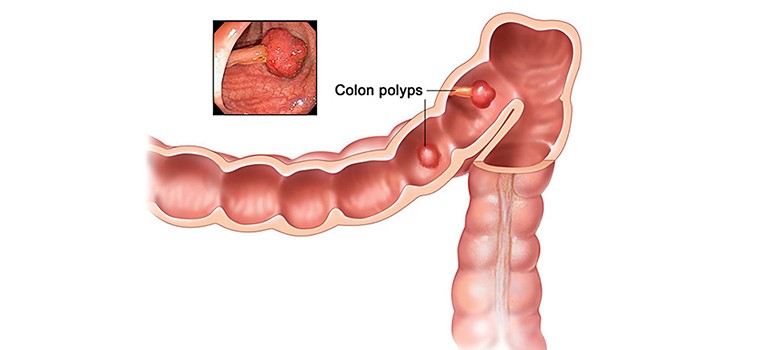Colorectal cancer, also known as Bowel cancer can be defined as any cancerous growth, affecting the colon (large bowel) and rectum (back passage). Most of these cancers begin as innocent growths, polyps on the wall of bowel, which can later develop into life-threatening malignancies.
If left untreated, the cancer cells can grow into the wall of the bowel and rectum, blood stream or lymph nodes and later throughout the body (liver, lungs) by the mechanism known as Metastasis.
Older age, positive family history, African-American race, previous history of polyps or colorectal cancer, chronic inflammatory conditions of bowel (ulcerative colitis, Crohn’s disease), low-fiber and high-fat diet, sedentary life style, obesity, smoking, alcohol and radiotherapy for cancer are known to increase the risk of colorectal cancers in a surprising manner.
Therefore, it is highly advisable to seek prompt medical advice, just as you catch one or more of the suspicious signs and symptoms since 75% of colorectal cancers are curable if intervened as early as possible.
Read below the commonest signs and symptoms of colorectal cancer to be cautious about, just to prevent you and your loved ones falling into trouble.
- Altered bowel habits– A significant change in your bowel habits which can either be diarrhea or constipation (hard stools) or a change in the consistency of bowel content (faeces) which would probably last longer than four weeks.
- Rectal bleeding (blood in your stool, either bright red or very dark) which takes place without any obvious reason like trauma.
If this is the case, you should be able to tell your doctor about the,
Duration since the initial bleeding
Color of the blood
If blood is on or mixed with stool
If the blood is on the toilet paper or in the toilet bowl
How frequently the bleeding occurs?
Other associated symptoms accompanying the bleeding which might give an idea about anemia (shortness of breath, fatigue, pallor) which can result from long-term bleeding.
- Persistent abdominal pain or discomfort including cramps, passage of gas or pain
- Lumps, bulges, redness, itching or soreness in the anal area.
- Incomplete emptying of bowel– Such individuals will often complain of a heavy feeling in the tummy and an urge to open bowel, just after coming from the wash room.
- Stools which are narrower than usual
- Weakness and easy fatigue
- Unexplained loss of weight and appetite
- Any lumps of masses in the tummy
Majority of the patients will not show any signs or symptoms, at the initial stage and once the symptoms start showing up, it will depend on how your body responds to cancer, location, size and severity of the growth and individual health.
Important
Although colorectal cancer is common above the age of 50 years, it can still affect people of all ages and therefore seek immediate medical advice if you have one or more of the above symptoms, without assuming that you are too young to develop this kind of a cancer.




